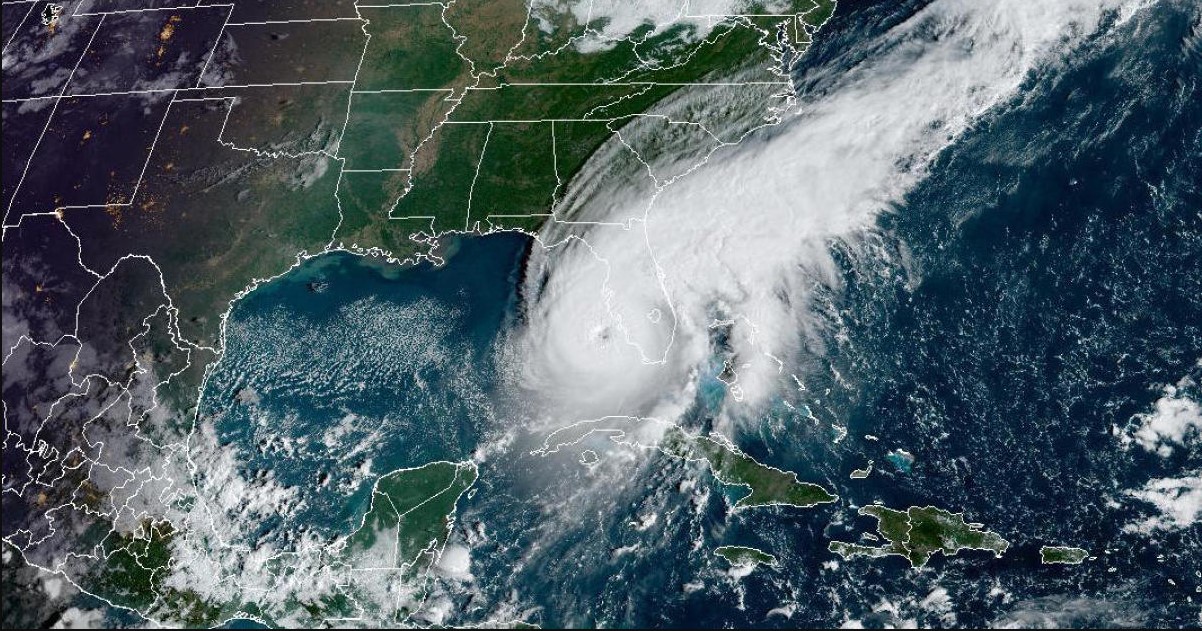Staying Safe in a Storm
The Atlantic hurricane season has arrived. All has been quiet so far, with only one named hurricane that moved through open waters, far from land, during the month of July. However, experts predict that an active season is ahead of us. The National Oceanic and Atmospheric Administration anticipates 12 to 17 named storms this year, with five to nine becoming hurricanes and one to four that could become severe. Any number of these storms could hit South Carolina’s coast and move towards the Upstate, bringing excessive wind and rain.
Preparation is key to getting through these wet weather events safely and with minimal damage to property. August through October are the most active hurricane months in South Carolina, and while we generally do not get the worst of the weather here in the Upstate, we certainly can feel the effects of high winds and heavy rains. In addition to taking steps to protect your home and yourself with some practical planning, it is important to think about sewer safety as well.
Wet weather events can exacerbate problems that already exist in sewer systems. Cracks, deterioration, and root intrusion in pipes all contribute to what is called Inflow and Infiltration (I&I), which refers to stormwater entering into the sewer system through faulty connections or damage to pipes or manholes. I&I can cause stormwater to overwhelm wastewater treatment facilities, forcing the plants to release untreated wastewater directly into nearby bodies of water, including drinking water sources. I&I during storms can also lead to Sanitary Sewer Overflows (SSO), which can cause sewage to flood communities or make its way to nearby water sources, like what happened in Pacifica, California last year, when sewage flooded an entire neighborhood’s streets. A community’s health and safety depend on safe sewer practices to protect it before, during, and after a storm.
In the Face of a Storm
Here are six tips to help you prepare for a storm and its aftermath.
-
- Have Your Sewer Lines Checked and Cleaned
Heavy rains from summer storms can cause water to infiltrate your sewer pipes through cracks and deterioration. If your pipes have debris or FOG buildup inside, they may not be able to handle this extra water, potentially causing sewage to back up into your home. It is not too late to have a plumber check and clean your lines, especially if you have already noticed signs of sewer slowdowns. If you or your plumber suspect the backup is outside your property line on MetroConnects‘ side of your lateral, call us first to take a look! - Know How to Turn Off Your Water
If your pipes get backed up during a wet weather event, it is important that you do not add any more water to your lines by flushing a toilet or running water from your sink. To prevent water from entering your system, you might want to shut it off at the source. Locate your shut-off valve ahead of a storm and be sure you know how to turn it off. This is important information to know if you experience a burst water pipe as well! - Be Prepared With Backup Water
Make sure you have both drinking water and water for sanitary needs available. During a hurricane or other wet weather event, you might not have access to clean water through your pipes for some time. Make sure you have plenty of bottled water for drinking on hand, as well as clean water stored in large containers that you can use for hand washing, dishwashing, and cleaning. This is especially important if you have experienced a backup in your home or a Sanitary Sewer Overflow has occurred nearby. Water-borne illnesses spread from contaminated water sources after a storm can be as dangerous as the storm itself. An average household of four will need approximately 25 gallons of water. - Make a Backup Waste Disposal System
Should disaster strike and your plumbing system is out of commission, it is key to have a system set up for human waste disposal. Consider having an emergency “twin bucket” make-shift toilet system available in your home to help you get by until your plumbing is back in working order. To make the toilets, fix two five-gallon buckets with toilet seats and label one “Poop” and the other “Pee” (or any other fun name you prefer!). Urine is non-toxic and can be disposed of on land or in storm drains. Fecal matter contains pathogens and needs to be treated with carbon material (sawdust, coffee grounds, shredded paper, etc.) and left to dry and turn into compost in the bucket. - Report Sanitary Sewer Overflows … and Then Stay Away
If you notice water or sewage leaking from a manhole, report it to MetroConnects. Stay away from the area where the sewage is spilling to keep yourself safe from any of the harmful bacteria that might be in the untreated water. - Stay Informed
When preparing for a storm or dealing with its aftermath, follow your local news and emergency services hotlines. Be aware of evacuation zones and routes, and follow all orders to evacuate immediately. Do not return to your area until it has been given the all-clear. As difficult as it is to lose property, your health and safety matter most!
- Have Your Sewer Lines Checked and Cleaned
Call MetroConnects
If you suspect any damage to sewer lines or manholes before or after a storm, call MetroConnects at (864) 277-4442. The safety and health of the community and our environment is MetroConnects number one (and number two) priority!
